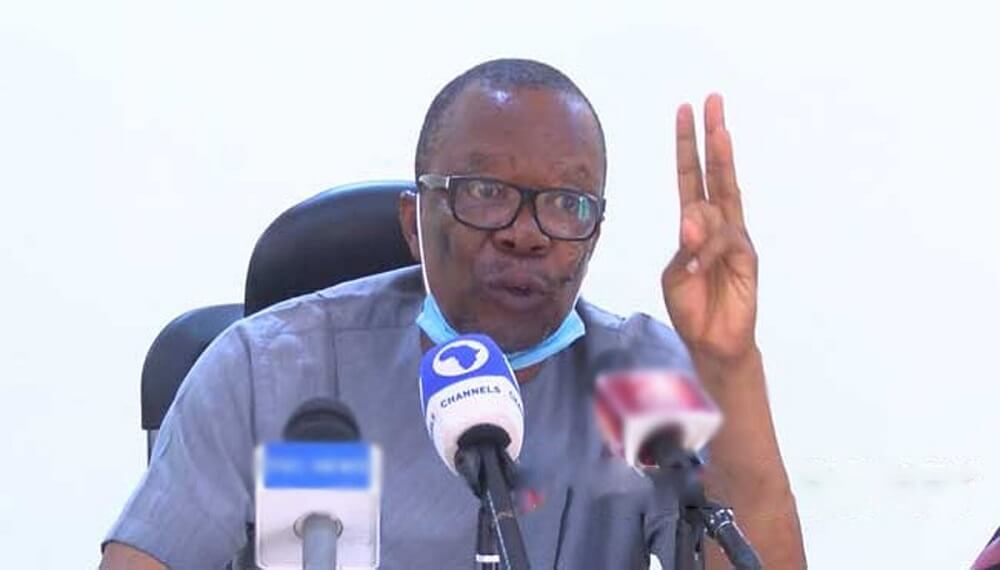EBONYI, Nigeria — Emmanuel Osodeke, the President of the Academic Staff Union of Universities, ASUU, on Wednesday, June 7, 2023, disagreed with the Federal Government’s proposed removal of fuel subsidy, alleging it’s riddled with insincerity and corrupt practices.
Osodeke, speaking during the Maiden Public Lecture and Ground Breaking Ceremony of Alex Ekuweme Federal University Ndufu-Alike Ikwo, Ebonyi State, criticized the government’s reluctance to revamp the nation’s refineries.
He argued this lack of action meant the petroleum sector wasn’t benefiting Nigerians as a whole.
The ASUU President insisted that any country that failed to prioritize education was setting itself up for crisis.
He said, “Where we are today is because our leaders in the past 20 to 25 years had not taken education seriously.”
Criticizing the government’s claims of fuel subsidy, Osodeke argued, “You can’t be exporting crude oil for more than 70 years and still can’t refine crude oil and sell to your people at the Nigerian rate, not at a dollar. Then, something is wrong.”
He pointed out the government’s failure to maintain and renovate the country’s existing refineries and contrasted it with smaller countries like Niger which have functional refineries.
Professor Biodun Ogunyemi, the immediate past President of ASUU, echoed Osodeke’s concerns. Delivering a lecture titled “Reinvesting Nigerian Universities for Research and Development: The ASUU perspective,” he called on the Federal Government to rethink its approach towards the education sector.
He criticized the government’s disregard for engaging with lecturers and stakeholders, and the abandonment of lengthy negotiations to combat brain drain and restore quality to the education sector.
Ogunyemi described the current environment as hostile to workers, intellectuals, and students, with unsustainable income, unfriendly policies, and a dilapidating infrastructure.
He called for a rethinking of Nigeria’s approach to education, emphasizing that the country’s university environments were not conducive to producing world-class graduates when compared to countries like Tanzania and South Africa.







